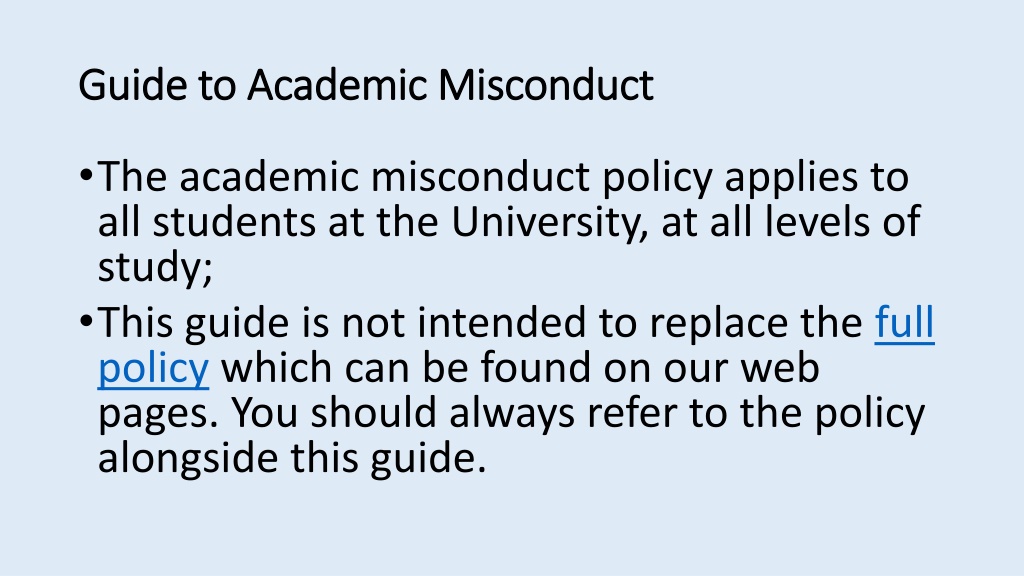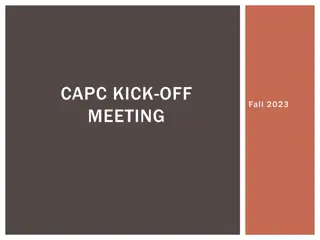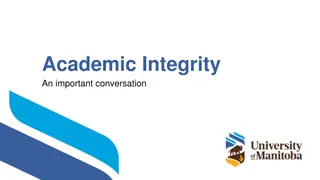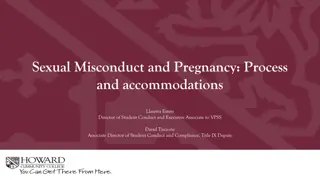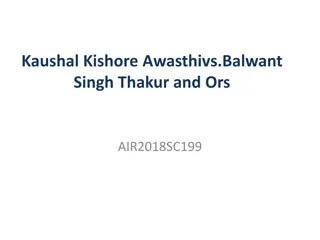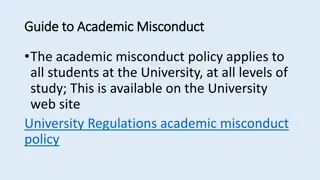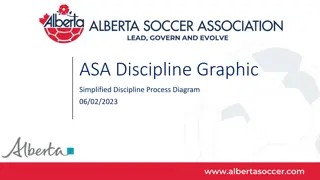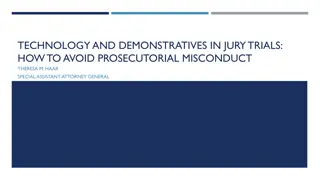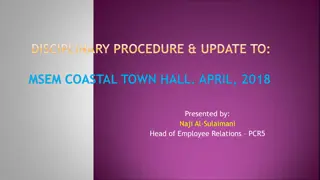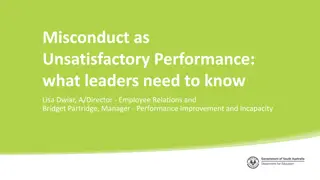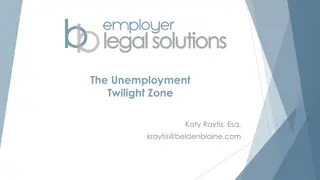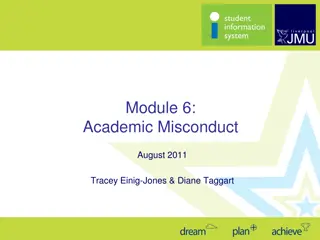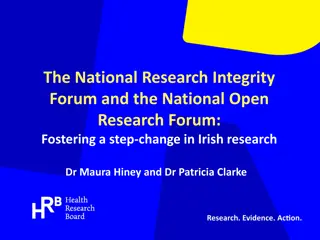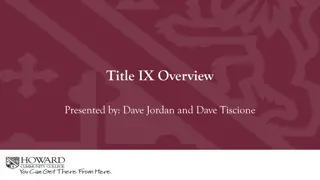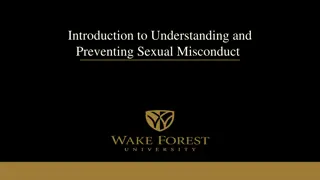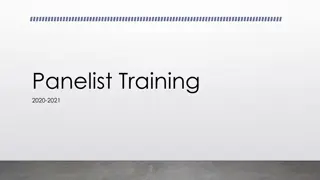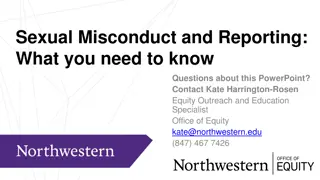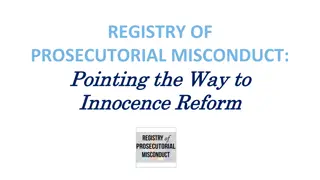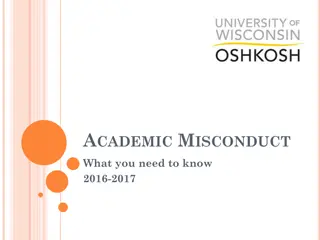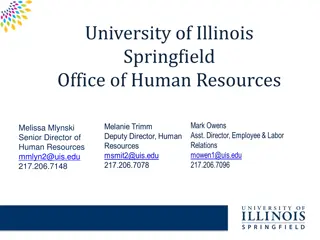Guide to Academic Misconduct: Understanding Policies and Procedures
The guide provides an overview of the academic misconduct policy at the University, covering various forms of misconduct such as plagiarism, collusion, and falsification. It outlines the investigation process, possible outcomes, and the roles of different panels involved in cases of academic misconduct. Students should be aware of the consequences and steps involved if accused of academic dishonesty.
Download Presentation

Please find below an Image/Link to download the presentation.
The content on the website is provided AS IS for your information and personal use only. It may not be sold, licensed, or shared on other websites without obtaining consent from the author. Download presentation by click this link. If you encounter any issues during the download, it is possible that the publisher has removed the file from their server.
E N D
Presentation Transcript
Guide to Academic Misconduct Guide to Academic Misconduct The academic misconduct policy applies to all students at the University, at all levels of study; This guide is not intended to replace the full policy which can be found on our web pages. You should always refer to the policy alongside this guide.
What does the University include in its definition of academic misconduct? Misconduct in an Examination or In Class Test Plagiarism Collusion Falsification Self-Plagiarism/Recycling Third Party Misconduct Breaching Ethical Standards Bribery Submitting Fraudulent Mitigating Circumstances
Investigating Academic Misconduct Examinations - the invigilator will make a note on your examination and an investigation will take place once the examination has finished. Assessments Your School will investigate the issue and you should expect to be invited to a meeting where you will discuss the alleged misconduct. The meeting will normally be within 10 days of the concern first arising.
Outcomes following initial investigation 1. No further Action - There is no case to be answered. 2. Academic Misconduct - There is a case to be answered If there is a case to be answered: you will be informed of the decision by your School. If you are not satisfied with either the decision or the penalty you may request a further consideration by an Independent Consideration Panel. In serious or complex cases, the matter may be referred directly to an Academic Misconduct Panel.
Independent Consideration When requested the IC Panel Checks the outcome recommended by the School/Department Establishes that the evidence is sufficient to justify the conclusion Will consider whether the penalty is appropriate Is carried out by panel members independent of the School/Department that carried out the initial investigation. You will be notified of the outcome of your misconduct once this process is complete
Academic Misconduct Panel Made up of senior staff who have had no previous involvement with the case The AMP will consider: (a) Whether the evidence is sufficient to justify the conclusion that a student has committed academic misconduct. (b) Whether the proposed penalty is appropriate in light of all the evidence and in accordance with the guidelines set out below. If your case was referred directly to an AMP, and this is therefore the first step of the misconduct process, you may request a review of the AMP decision by contacting the Deputy Vice Chancellor s office.
Further appeals after publication of results If you remain dissatisfied about the published misconduct outcome you should follow the Academic Appeals process. In your appeal you should include information about why (a) The decision of the Academic Misconduct Panel was unreasonable in light of the evidence available. (b) The hearing of your case was deficient in a way which materially prejudiced your case.
Indicative Penalties Examples are shown in the Table, penalties may differ depending on a number of factors Level 1st Offence 2nd Offence 3rd Offence Formative Penalty: assessment must be redone prior to a further presentation opportunity. Outcome is then on merit. Resubmission of the assessment for a capped bare pass outcome As for a second offence at Level I/ H F Formative Penalty: assessment must be redone prior to a further presentation opportunity. Outcome is then on merit. Resubmission of the assessment for a capped bare pass outcome As for a second offence at Level I/ H C Resubmission of the assessment for a capped bare pass outcome Resubmission of the assessment for a capped bare pass outcome Resubmission of the assessment to enable a capped bare module/ block pass outcome Block is awarded outcome of 0 Termination of Studies I Block is awarded outcome of 0 Termination of Studies H/ Integrated Masters M PG Block/module is awarded outcome of 0 Termination of Studies
